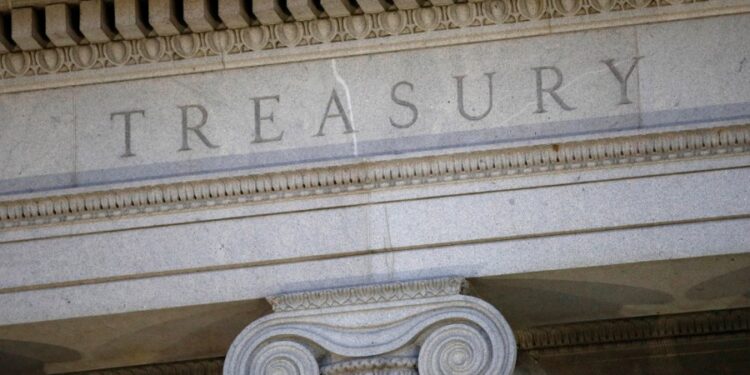
President-elect Trump announced economist Michael Faulkender as his pick for deputy secretary of the Treasury on Wednesday, the second-highest ranking position at the department.
If confirmed, Faulkender would serve under Scott Bessent, Trump’s nominee to be Treasury secretary.
During Trump’s first term, Faulkender ran the Paycheck Protection Program (PPP) at the Treasury, a stimulus policy that sent out nearly $800 billion in loans to businesses to keep workers on the payroll during the pandemic, almost all of which were forgiven.
Faulkender is currently a professor of finance at the University of Maryland’s business school. He’s also the chief economist at the America First Policy Institute, the Trump-aligned think tank that has staffed much of the president-elect’s new administration.
Faulkender teaches masters of business administration classes at the University of Maryland’s Smith School of Business.
The school’s website says his research focuses on “corporate capital structure, risk management, corporate liquidity and executive compensation.”
“Mike is a distinguished economist and policy practitioner who will drive our America-first agenda,” Trump said in a post on Truth Social, his social media platform.
The PPP came under scrutiny for benefitting the wealthiest taxpayers. One study found that only 23 to 34 percent of PPP bucks went directly to workers who would have otherwise lost their jobs during the pandemic.
“Program incidence was ultimately highly regressive, with about three-quarters of PPP funds accruing to the top quintile of households,” economist David Autor and co-authors wrote in a 2022 study of the program for the American Economic Association.
PPP loans were also susceptible to fraudulent claims, with researchers finding that roughly a tenth of the forgiven loans, amounting to more than $64 billion, were “questionable,” with the most suspicious activity occurring in the financial technology sector.
“Overall, we find 1.41 million questionable loans representing $64.2 billion in capital,” University of Texas economists wrote in 2022. “FinTech market share increased significantly over time, and suspicious lending by FinTechs in 2021 is four times the level at the start of the program.
Suspicious loans are being overwhelmingly forgiven at similar rates to other loans.”
Faulkender defended the program earlier this year, writing in a paper for the Treasury that “that PPP saved 10.9 million jobs at sub-100 employee businesses and 14.0 million jobs overall, at an average cost of approximately $33,200 to $37,600 per job saved.”







